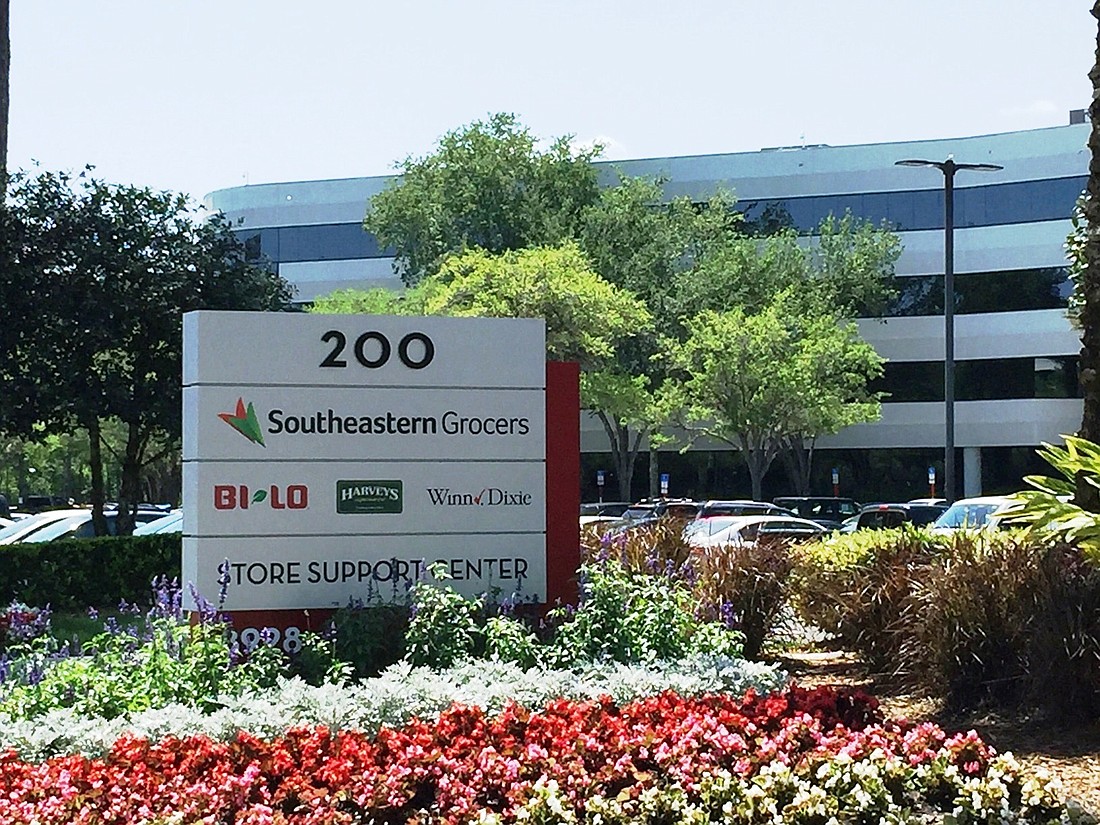
It hasn’t even been two weeks since Southeastern Grocers LLC filed its Chapter 11 bankruptcy petitions, but the company already has a confirmation hearing scheduled.
U.S. Bankruptcy Judge Mary Walrath will hold the confirmation hearing for Southeastern’s prepackaged reorganization plan on May 14 in her Wilmington, Delaware, courtroom.
Southeastern, Jacksonville-based operator of Winn-Dixie and three other supermarket chains, will issue stock to pay off $522 million in notes in the reorganization.
The plan was approved by holders of 80 percent of the notes before the March 27 filing. In fact, Southeastern began soliciting votes from creditors March 15 to approve the plan, according to a notice filed for the confirmation hearing.
The notice also says the usual creditors meeting in a bankruptcy case, under Section 341 of the Bankruptcy Code, will not be held before May 28, and if the plan is confirmed before that date, there will be no creditors meeting at all.
Southeastern expects to continue operating about 580 stores in seven states under the Winn-Dixie, Bi-Lo, Harveys and Fresco y Más banners when it emerges from Chapter 11.
With the support of creditors before it filed the prepackaged plan, Southeastern said in court filings it expects to emerge within 135 days of the filing.
FRP Holdings Inc.’s agreement last month to sell a large group of industrial properties for $358.9 million will have a drastic impact on its operations.
The portfolio of 41 industrial warehouses accounted for about 69 percent of its 2017 revenue and 42 percent of its net assets at the end of the year, according to a proxy statement filed by Jacksonville-based FRP.
Pro forma financial statements in the proxy show if the transaction already had been completed, it would have reduced FRP’s operating profit from $13.6 million last year to about a break-even level.
However, the company believes the sale to an affiliate of Blackstone Real Estate Partners will make it more profitable in the long run.
“The FRP Board believes that divesting the properties will result in a significant overhead reduction and allow the sale proceeds to be reinvested in its other business segments to generate higher returns,” it said in the proxy, which was filed for the company’s annual meeting.
The industrial properties are mostly in Maryland, with some also in Virginia and Delaware.
After the sale, FRP’s main assets will be several development properties, including a high-profile riverfront apartment building with retail space in Washington, D.C.
It also owns properties leased for construction materials mining mainly in Florida and Georgia.
FRP, along with trucking company Patriot Transportation Holding Inc., was spun off from Jacksonville-based construction materials company Florida Rock Industries Inc. in 1986.
According to the proxy, FRP’s remaining assets produced $15.6 million in revenue last year, almost evenly split between rental revenue from developed properties and mining royalties.
Because the building sale is such a significant part of its business, FRP will need shareholder approval for the deal at its annual meeting. The date for the meeting has not been set.
The proxy says the Baker family of Jacksonville, which controls about 32 percent of the stock, agreed to support the sale.
When it reported fourth-quarter earnings last month, Stein Mart Inc. said it was notified by Nasdaq it could lose its listing because its stock price had been below $1 for 30 days.
As it turned out, a positive outlook for the Jacksonville-based fashion retailer immediately sent the stock above $1 after the earnings report.
So, Stein Mart last week said in an SEC filing it was back in Nasdaq compliance because the stock stayed above $1 for 10 consecutive business days.
ParkerVision Inc. also is in danger of losing its Nasdaq listing, with its stock trading below $1 for the past two months.
The Jacksonville-based technology company last week said in an SEC filing it needs to raise its market value to $35 million or its level of stockholders’ equity to $2.5 million to regain compliance with Nasdaq requirements.
ParkerVision’s stock was trading at about 80 cents for most of last week, giving it a market value of about $19 million, based on its most recent report of 23.8 million shares outstanding.
The company had negative stockholders’ equity on its balance sheet at the end of 2017.
ARC Group Inc., operator of the Dick’s Wings & Grill restaurant chain, reported 2017 earnings of $344,740, or 5 cents a share, reversing a loss in 2016.
Revenue more than tripled from $1.28 million in 2016 to $4.45 million in 2017, due to the acquisition of two restaurants by the Jacksonville-based company that were formerly owned by franchisees.
Dick’s Wings has 17 restaurants in Florida and five in Georgia.
Duos Technologies Inc. recorded a net loss of $5.2 million in 2017, with revenue dropping 36 percent to $3.9 million, according to its annual report filed with the SEC.
The company said in the report the decreased revenue was caused by a delay of an $11 million capital raise that was supposed to close by midyear but did not actually close until six months later. That led to a disruption in its business.
Jacksonville-based Duos provides intelligent security analytical technology solutions.